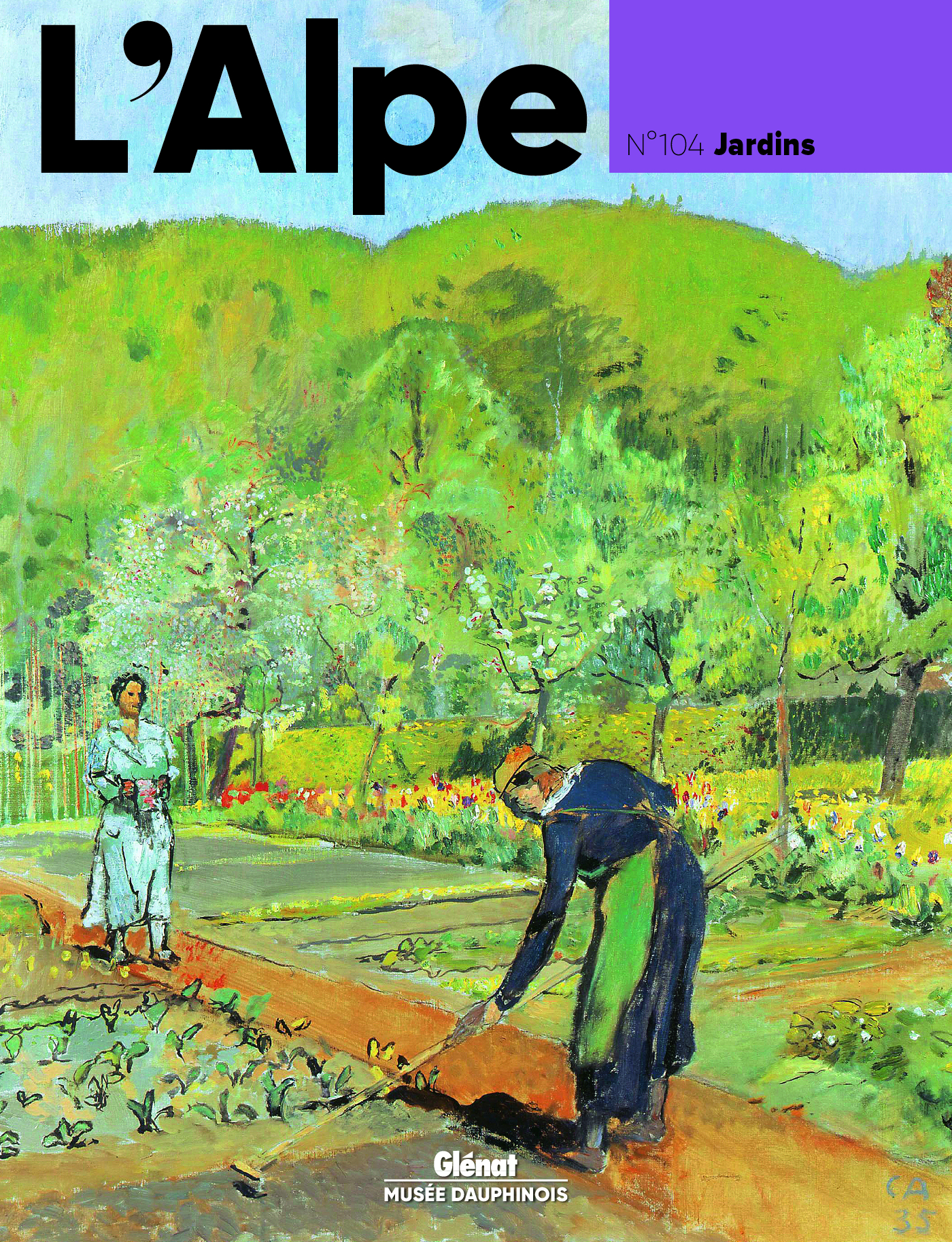Translations : Cary Bartsch
Written for people looking for information with meaning, L’Alpe is the first review devoted to the many cultures and heritages of Alpine Europe. Its ambition is to provide information, language barriers not withstanding. As your guide, L’Alpe looks at the people who, from the meandering Danube to the Rhône, have adapted to an exceptional climate. A cross between a book and a magazine, it draws on the first to provide background documents on a main theme, supported by rigorous analysis, an insistence on quality and the notoriety of renown authors. From the second, it adopts a quarterly rhythm for regular contributions to current debates, rich illustrations, the insatiable curiosity of its journalists and a necessarily didactic approach. Though rigorous in its approach to knowledge, L’Alpe is not a scientific journal. It calls on the contributions of history, geography, archaeology, ethnology, etc. to shed light on the meaning of the traces left by man on the mountain environment. And it is also open to current debates on the future of the Alps and other mountains in the world.
Side by side
In the middle of Lake Geneva, Swiss and French waves happily meet and mix. The waters flowing over the invisible border certainly symbolise an enriching encounter between different cultures. Looking out over the magnificent lake panorama that both separates and unites the two countries, an author meditates on the essence and the meaning of our cultural landscapes.
The princess of Alpine waters
River and lake trout have long been appreciated as a gourmet dish. When tourists arrived, they took on the added virtues of the Alps. Even today, it is the flavour of Alpine streams that people taste when eating a mountain trout, whether it comes from the Alps or not. Does the origin really matter, as long as you have the taste of the Alps ?
High-altitude crew
Bring the sea to the mountains ! That was the elusive dream held by the French Alpine club and the Nice Nautical club in 1911 when they undertook a surprising effort to promote tourism in the Alpes-Maritimes department with a new Alpine sport, a crew race on the high-altitude Rabuons lake.
Lake lights
Colourful lights signal the jetties, the safe places and the dangers of Lake Geneva. Magnificent, public lighthouses and old, private lights have blinked for decades, indicating the way home for sailors out on the waters that are not without difficulties and sudden storms. While navigating the lake, Gilles Favez drew up a photographic inventory of these virtually unknown monuments, the faithful sentinels of the lake.
Watery trafficking
Smuggling over the lake between the Swiss Tessin canton and Italy is the more unusual side of a centuries-old activity. Confronted with the vigilance of customs officials, the smugglers have always shown great ingenuity. Some rather odd vessels have played a game of cat and mouse both on and under the water !
Portfolio – let’s have some fun
Plonk et Replonk, a funny name for a funny company set up in the Swiss Jura region that takes delight in playing on clichés in fanciful photomontages mixing the absurd with a derisive bent. The Léman museum in Nyon (Vaud) opened up its archives to the creators and took part in the fun and games while the exhibition lasted. An occasion to discover the « parallel and perpendicular worlds » of two unusual artists.
Resonating waves
Olivier Messiaen, whose hundredth birthday is celebrated this year, composed most of his pieces in the calm of his home at Petichet, on the Laffrey lake in the Matheysine region (Isère department). His work was largely inspired by the Dauphiné landscapes, birds and the music and colours of water.
Alpine landlubbers
All mockery aside, Switzerland has a true Navy. That is hardly surprising given the large rivers and lakes that form its borders and constitute great means of penetration to the heart of the country. Since World War Two, military units in combat boats have sped over Swiss waters, keeping a close eye on the national borders.
O lago mio !
Fishing in the Italian lakes is a traditional activity, even though the numbers of professional fishermen have dropped steadily. Those still active have had to adapt to changes in the environment and in demand. Far from the maddening crowd and the spotlights, these men live a different life and perpetuate both ancestral know-how and a true lake culture.
Fading appeal ?
Less interest in the mountains on the part of young people, competition from other destinations, falling tourism revenues, etc. Is the appeal of mountains fading ? With the golden age of mountain resorts apparently past, the question is how to interest the younger generations in a world they are abandoning. A crucial question for the future of tourism in the Alps.
The first shepherds in the Alps
Some 7 500 years ago, recently domesticated herds of sheep, goats and cows discovered with delight the good Alpine grass. The Neolithic cultural revolution transformed hunter-gathers into farmer-herders and signalled the start of mankind’s control over Nature, thus changing our societies forever. Based on recent archaeological research, an exhibition at the Musée dauphinois looks at the launch of Alpine pastoral civilisation, a first step out of prehistory.


